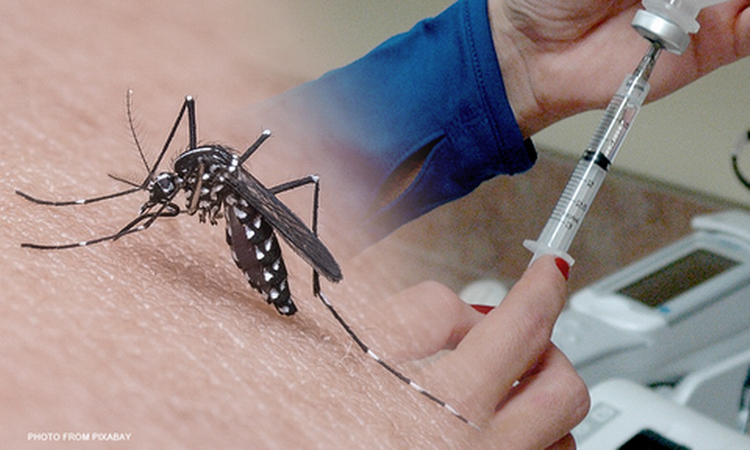PH dengue cases on 'slow downward trend'; DOH still awaits approval of new vaccine
The Department of Health (DOH) said the number of reported dengue cases this year has reached 179,444 as of Nov. 11, but “cases are currently on a slow downward trend.”

Based on the DOH data, there has been a 10.96 percent decrease in reported cases from Oct. 15 to 28, with 10,835 cases compared to the 12,169 cases reported in the previous two weeks.
“No region showed continuous uptrend in the recent six weeks (from Oct. 1 to Nov. 11), nor an increase in the recent one to two weeks (from Oct. 29 to Nov. 11),” DOH said.
Meanwhile, Regions II, V, and VII have seen an increase in cases over the past three to four weeks, reporting up to 1,014 new cases in the last four weeks, it added.
The DOH highlighted that the reported dengue cases have resulted in 614 deaths, yielding a case fatality rate of 0.34 percent.
While there is a slow downward trend, authorities advised the public to remain vigilant due to the possibility of late reports that could lead to a surge in cases.
DOH-Bureau of Local Health Development and National Epidemiology Center Director Eric Tayag said on Thursday, Nov. 23 that the second-generation dengue vaccine, “Qdenga,” developed by Takeda in Japan, may be available in the Philippines soon.
In an interview with ABS-CBN's TeleRadyo Serbisyo, Tayag said the vaccine is “not yet available” in the Philippines, as it is currently undergoing the approval process with the Food and Drug Administration (FDA).
"WHO has issued early recommendations for the Qdenga vaccine, suggesting it for children aged six to 16," Tayag said.
"Pending FDA approval, the vaccine will be administered in two doses, three months apart,” he added.
Highlighting promising results from studies conducted four to five years ago, Tayag expressed confidence in the vaccine's efficacy, showing a significant reduction in dengue infections among trial participants.
Despite the anticipation for the new vaccine, he emphasized the continuous implementation of the “4S” strategy in the country, which means to search and destroy mosquito breeding places, seek early consultation, secure self-protection, and support anti-dengue fogging or spraying operations when necessary to combat dengue.
“Kung matatandaan, sa panahong ito ay magandang balita dahil mas mababa ang kaso ng dengue ngayon kumpara noong isang taon. Sana ito ay tuloy tuloy na (At this time, it's good news because the cases of dengue are lower now compared to last year. Hopefully, this continues,” he said.
"Mukhang pinakinggan naman ng mga kababayan natin ang advice ng DOH at ng iba pang ahensya to prevent dengue (It seems that our fellow countrymen have listened to the advice of the DOH and other agencies to prevent dengue),” he added.
However, there is still no definite timeline as to when the Qdenga vaccine will be available in the country.
"It is already accessible in Thailand and Indonesia in the private sector; dahil karaniwan, sa bagong bakuna ay sa pribadong sektor muna ini-introduce bago pa ilagay sa national immunization program ng isang bansa (Typically, a new vaccine is initially introduced in the private sector before being incorporated into a country's national immunization program),” Tayag said.